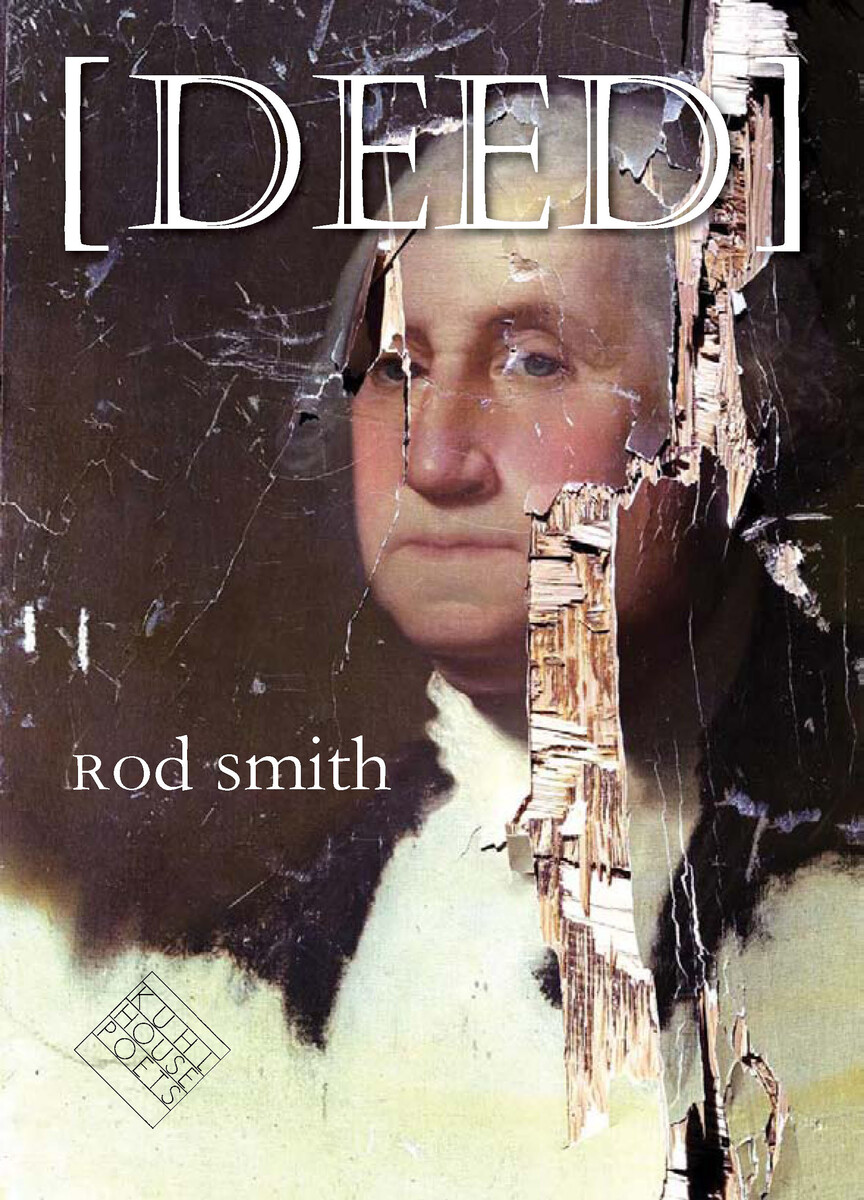A deed is a governmental conveyance, a power asserted by the written, for, as William Carlos Williams wrote to Robert Creeley: “the government can never be more than the government of the words.” The question of ownership, of the words with which we define ourselves and each other, and of whose and what claims are legitimate is much at issue in Rod Smith’s Deed, a lyric, ambitious, rebellious work thoroughly grounded in the New American tradition of poets such as John Ashbery, Allen Ginsberg, and Charles Olson.
At the entrance to this collection stands an abode in the form of a long poem, “The Good House,” a comfortable, at times soothingly humorous place that is also a site of conflict. In “The Spider Poems,” the mythic spider, the maker of the alphabet, is a figure of fun and revelation. The third section of the book presents a series of shorter poems chosen for their stylistic variety. Deed ends with a nod to two masters, as Smith turns Jack Spicer’s “Homage to Creeley” into a double homage with “Homage to Homage to Creeley.” The gesture of choosing what one brings into one’s house, what one decides to love, closes the book.
Deed is about making as bequeathing, as celebration, and as impatience for the true democracy that is always yet to arrive. There is still joy inside and out, and by giving us Deed Rod Smith has captured that joy. In so doing he tells us where we as a people, a politik, and a poetic are going.
Excerpt:
the good house—it is heavy,
the good house—it exercises
hope in the inhuman, is transformed
by it—
becomes blatant in its strength
& is destroyed, the good
house must be rebuilt
carefully. The good house
is in conflict.
“The great thing about Rod Smith’s work is that it is all risk all the time. In Deed, he has built a substantial architecture whose ‘perilous upkeep’ is dazzling. This is a truly wondrous book.”—Peter Gizzi
“A master poet among us? I’d vote for Rod Smith. With the sweeping vision of Whitman, the noun-play of Gertrude Stein, and the slant political commentary of the New York School, Smith chisels out a place of his own with a tremendous integrity of vision. Deed contains the best of what American poetry has to offer: a place to pause and reflect upon the beauty of language and love flowering up through the mayhem of the world.”—Lisa Jarnot, author, Black Dog Songs



